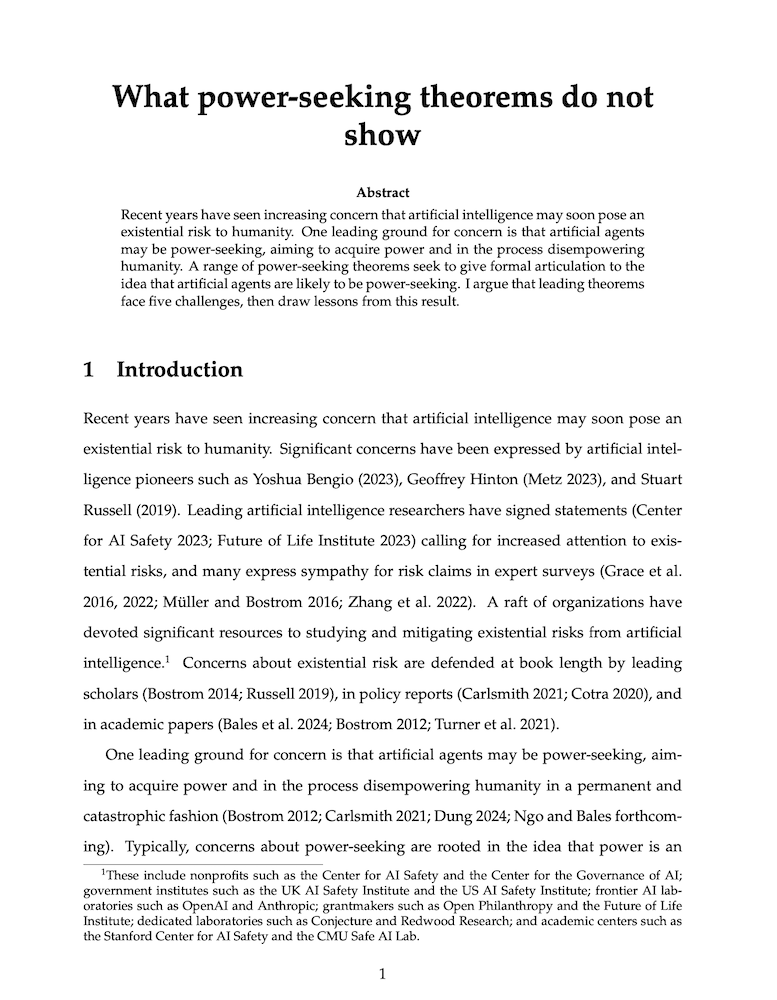What power-seeking theorems do not show
David Thorstad (Vanderbilt University)
GPI Working Paper No. 27-2024
Recent years have seen increasing concern that artificial intelligence may soon pose an existential risk to humanity. One leading ground for concern is that artificial agents may be power-seeking, aiming to acquire power and in the process disempowering humanity. A range of power-seeking theorems seek to give formal articulation to the idea that artificial agents are likely to be power-seeking. I argue that leading theorems face five challenges, then draw lessons from this result.
Other working papers
Moral demands and the far future – Andreas Mogensen (Global Priorities Institute, Oxford University)
I argue that moral philosophers have either misunderstood the problem of moral demandingness or at least failed to recognize important dimensions of the problem that undermine many standard assumptions. It has been assumed that utilitarianism concretely directs us to maximize welfare within a generation by transferring resources to people currently living in extreme poverty. In fact, utilitarianism seems to imply that any obligation to help people who are currently badly off is trumped by obligations to undertake actions targeted at improving the value…
Moral uncertainty and public justification – Jacob Barrett (Global Priorities Institute, University of Oxford) and Andreas T Schmidt (University of Groningen)
Moral uncertainty and disagreement pervade our lives. Yet we still need to make decisions and act, both in individual and political contexts. So, what should we do? The moral uncertainty approach provides a theory of what individuals morally ought to do when they are uncertain about morality…
Doomsday rings twice – Andreas Mogensen (Global Priorities Institute, Oxford University)
This paper considers the argument according to which, because we should regard it as a priori very unlikely that we are among the most important people who will ever exist, we should increase our confidence that the human species will not persist beyond the current historical era, which seems to represent…

